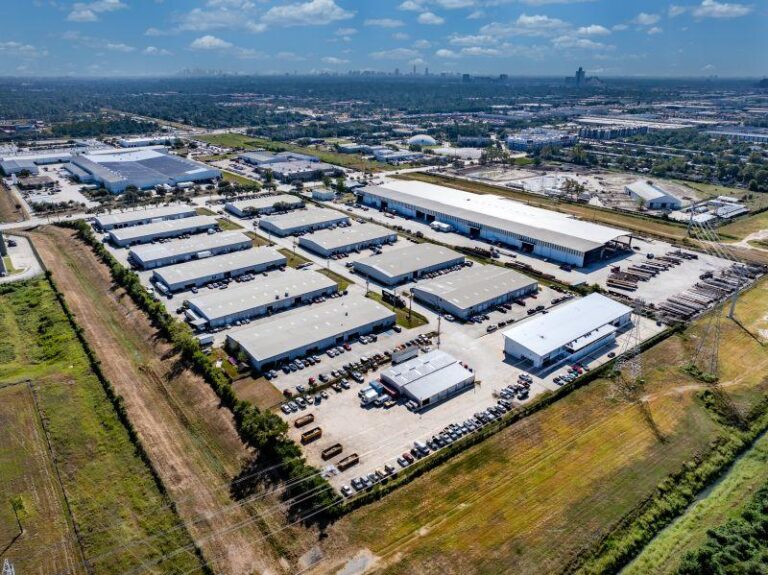Pagewood and Long Wharf Capital Strengthen Houston Presence with Large Business Park Purchase
Pagewood and Long Wharf Capital have recently enhanced their commercial real estate holdings in Houston by acquiring an expansive 292,200-square-foot business park. This strategic move reflects their dedication to capitalizing on Houston’s thriving industrial and office markets, which continue to attract tenants seeking flexible, modern spaces. The property comprises multiple industrial warehouses and office suites, designed to accommodate a variety of business functions such as distribution, light manufacturing, and corporate operations.
Situated in a highly accessible area of Houston, the business park benefits from close proximity to major transportation arteries and the Port of Houston, a critical logistics hub. Notable features of the property include:
- Warehouses with high ceilings suitable for large-scale storage
- Extensive truck loading and maneuvering zones
- Advanced security infrastructure ensuring tenant safety
- On-site facilities designed to support tenant productivity and comfort
This acquisition is poised to increase the property’s market competitiveness and generate sustainable growth, aligning with Houston’s ongoing economic momentum. Industry analysts predict this deal will inspire further investments targeting Houston’s expanding commercial real estate sector.
| Property Overview | Details |
|---|---|
| Total Area | 292,200 sq. ft. |
| Number of Structures | 8 |
| Location | Houston, Texas |
| Property Type | Business Park |
Impact on Houston’s Commercial Real Estate Landscape
The purchase of this substantial business park by Pagewood and Long Wharf Capital marks a pivotal moment in Houston’s commercial property market. It underscores a rising investor optimism fueled by the city’s resilient economy and the surging demand for adaptable office and industrial spaces. Houston’s diverse economic base—spanning energy, technology, and logistics sectors—continues to drive the need for versatile commercial real estate, making such acquisitions increasingly attractive.
Critical strategic factors include:
- Asset repositioning: Investors are focusing on properties ripe for modernization and flexible use, enhancing long-term value and tenant satisfaction.
- Location benefits: Access to key transportation routes and urban centers remains essential for attracting and retaining tenants.
- Portfolio diversification: Combining office and industrial assets helps mitigate risks and meets the varied demands of tenants.
| Influencing Factor | Market Effect | Future Outlook |
|---|---|---|
| Economic Expansion | Drives increased demand for commercial spaces | Fosters new construction and redevelopment |
| Infrastructure Enhancements | Boosts property accessibility and value | Strengthens market competitiveness |
| Tenant Preferences | Growing demand for flexible, technology-enabled environments | Promotes property upgrades and innovation |
Distinctive Attributes and Advantages of the Houston Business Park
Located within one of Houston’s most dynamic commercial corridors, this 292,200-square-foot business park offers a blend of strategic accessibility and cutting-edge infrastructure. The facility provides tenants with modern office environments tailored to a broad spectrum of industries, including tech startups and supply chain enterprises. The site features generous parking, sustainable landscaping, and is well-connected to major highways and public transit, facilitating smooth operations and employee commutes.
Economic benefits of the acquisition include competitive leasing structures and customizable space configurations that adapt to evolving business needs. On-site amenities such as collaborative meeting rooms, round-the-clock security, and advanced IT systems foster innovation and operational efficiency. The property’s eco-conscious design reduces energy consumption, lowering costs for tenants and supporting environmental stewardship.
Guidance for Tenants and Investors in Houston’s Evolving Industrial Market
As Houston’s industrial sector continues to evolve, tenants must remain agile by prioritizing flexible leasing arrangements that accommodate shifting supply chain demands and economic conditions. Selecting properties within well-established business parks—like the recently acquired Houston site—ensures access to superior infrastructure and logistics networks, enhancing operational resilience.
Investors should focus on building diversified portfolios that include a range of industrial assets to buffer against market fluctuations. Emphasizing locations with strong transportation connectivity and expanding warehousing capacity will position portfolios for long-term success. Below is a summary of essential considerations for optimizing investment strategies in Houston’s industrial real estate market:
| Focus Area | Significance | Recommended Strategy |
|---|---|---|
| Asset Adaptability | Supports diverse tenant requirements | Invest in flexible unit sizes and layouts |
| Logistics Connectivity | Enhances supply chain efficiency | Target properties near highways and ports |
| Market Diversification | Mitigates sector-specific risks | Expand holdings across multiple submarkets |
Conclusion
The acquisition of the 292,200-square-foot business park in Houston by Pagewood and Long Wharf Capital represents a significant milestone in the city’s commercial real estate sector. Leveraging their combined expertise and capital, these firms are set to enhance the property’s value and influence the broader market landscape. This transaction exemplifies sustained confidence in Houston’s economic prospects and highlights the increasing attractiveness of strategically located industrial and office properties within the region.




